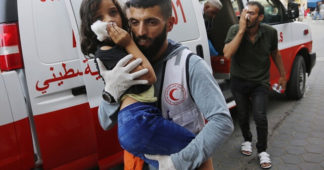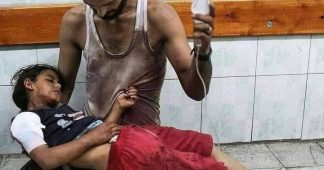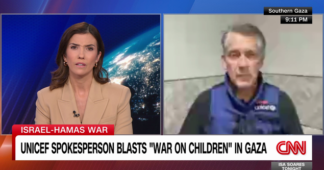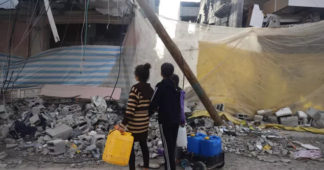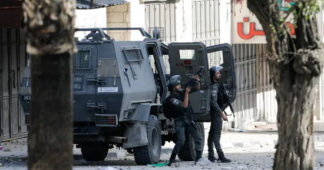It’s not just bullets and bombs. I have never seen health organisations as worried as they are about disease in Gaza
By Devi Sridhar
Dec 29, 2023
The Israel-Gaza war has set several world records. It’s the deadliest conflict for journalists in 30 years. It has caused the largest single loss of life for United Nations staff in the history of the organisation. It is set to have the worst ever total number of attacks on healthcare facilities and their personnel, and has devastated schools, with 51% of education facilities damaged. International rules such as the Geneva conventions have not been respected: hospitals and ambulances have been targeted, medical relief organisations such as Doctors Without Borders (MSF) and Save the Children are under attack, and have lost staff members.
The Israel-Gaza war is also deadly for children, reportedly the deadliest conflict for children in recent times: roughly 160 children were being killed a day last month according to the World Health Organization. Compare this with three a day in the recent conflict in Syria, two a day in Afghanistan, and 0.7 a day in Ukraine. The total number of children killed is already more than 5,300 says Unicef, the United Nations Children’s Fund. They didn’t choose to be born there, and are innocent, but are bearing the brunt of these attacks.
Tragically, the nearly unprecedented death and injury we have seen so far is likely to only be the beginning. From looking at similar conflicts across the world, public health experts know that we are likely to see more children dying from preventable disease than from bullets and bombs. While the Israeli government has spoken about safe zones for families to flee to, these aren’t anywhere near what we would consider safe public health zones. They don’t have clean water, functional sanitation and toilets, enough food, or trained medical staff with medicine and equipment. These are the basic needs that any human, especially babies and children, need to stay healthy and alive.
The WHO spokesperson Dr Margaret Harris has said that diarrhoea rates among children in refugee-like camps (sheltered housing) in Gaza were, in early November, already more than 100 times normal levels, and with no treatments available, children can become dehydrated and die quickly. Diarrhoeal diseases are the second leading cause of death in children under five worldwide, and they are caused by contaminated water sources and lack of access to oral rehydration fluids. Upper respiratory infections, chickenpox, and painful skin conditions have also increased, and there are fears that the recent floods may result in untreated sewage mixing with fresh water used for drinking and cooking, and cause a cholera outbreak.
Continue reading at www.theguardian.com
We remind our readers that publication of articles on our site does not mean that we agree with what is written. Our policy is to publish anything which we consider of interest, so as to assist our readers in forming their opinions. Sometimes we even publish articles with which we totally disagree, since we believe it is important for our readers to be informed on as wide a spectrum of views as possible.
